Lupine is a symbol of faithfulness, watchfulness, and imagination. It also represents renewal, hope, and new beginnings.
Lupine flowers come in many colors, but the most common are blue, purple, and white. The blue lupine symbolizes faithfulness, while the purple lupine symbolizes imagination. White lupine represents renewal and hope.
Lupines are often associated with wolves. This is because the lupine plant is a member of the legume family, which also includes peas and beans. The word “lupine” comes from the Latin word for wolf, “lupus.”
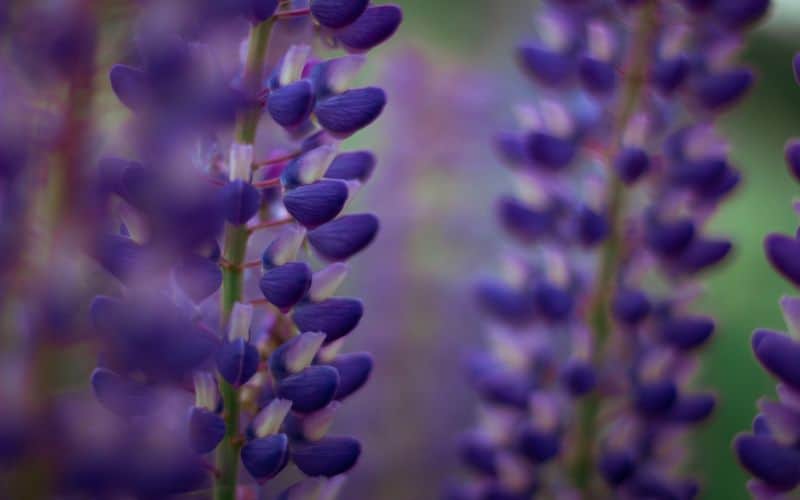
Quick Overview: Lupine Symbolism
- Imagination
- Admiration
- Intuition
- Creativity
- Innovation
- Passion
- Determination
- Compassion
- Inspiration
9 Lupine Symbolism
1. Imagination
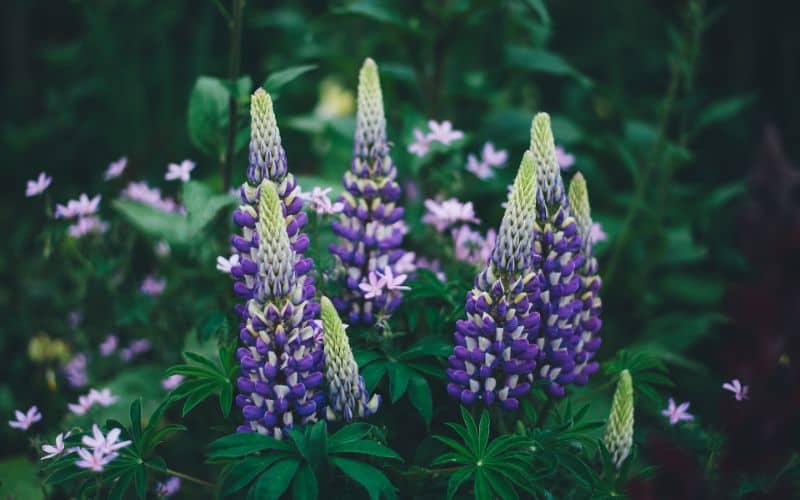
The Lupine flower is most commonly known for its connection to the imagination.
For many, the purple hue of the Lupine flower symbolizes royalty and greatness. Lupines also have a very distinct shape which has been said to resemble a wolf’s head. This may be why Lupine is also sometimes referred to as a “wolf’s bane”.
Read More: Bleeding Eyes Symbolism
The Lupine flower is most commonly found in North America and Europe and is known to be quite fragrant. It is not uncommon for people to plant Lupines in their gardens as they are known to attract bees and other pollinators. In some cultures, the Lupine flower is believed to have medicinal properties and can be used to treat various ailments.
Although the Lupine flower has many different meanings, it is most commonly associated with imagination. The distinct shape of the flower and its Purple color can be seen as a representation of creativity and innovation.
The Lupine flower is often seen as a symbol of hope and inspiration. For many, the Lupine flower represents all that is good in the world and serves as a reminder that anything is possible if you let your imagination run wild.
2. Admiration

Lupine flowers are most commonly purple, but can also be white, yellow, pink, or blue. They are native to North America and grow in a variety of habitats ranging from woodlands to meadows.
Lupines have long been associated with admiration and appreciation. In the language of flowers, they represent both love and imagination.
The scientific name for the lupine flower is Lupinus, which comes from the Latin word for “wolf.” This is likely due to the fact that lupines often grow in areas where wolves live. However, the meaning of the word has changed over time, and it now symbolizes courage and strength.
Lupines are often given as gifts to express admiration and respect. They can also be used to decorate gardens and public spaces. Whether given as a gift or planted in a garden, lupines are sure to bring admiration and appreciation.
3. Intuition

Lupine has many different meanings and associations, but it is most commonly known as a symbol of Intuition.
Lupine flowers are often seen as a representation of guidance and protection, making them the perfect choice for someone who is embarking on a new journey or exploring their intuition.
The delicate blooms of the lupine plant are also said to represent grace, gentleness, and compassion. All of these qualities are important when nurturing your intuition. Like the lupine plant, we all need time to bloom and grow into our best selves.
By cultivating self-awareness and listening to our gut instinct, we can develop a strong foundation of intuition that will serve us well throughout our lives.
4. Creativity

The lupine flower is a symbol of creativity because of its unique shape and vibrant colors.
The name “lupine” comes from the Latin word for wolf, which also happens to be the national animal of Romania. Lupines are also known as “fire flowers” because they often bloom in areas that have been recently burned by wildfires.
Despite their tough appearance, lupines are actually quite fragile and only bloom for a brief period of time. Their short lifespan is a reminder that even the most beautiful things can be fleeting.
The next time you see a field of lupines, take a moment to appreciate their beauty and think about what they might be trying to tell us: that creativity is an essential part of life, and always worth fighting for.
5. Innovation
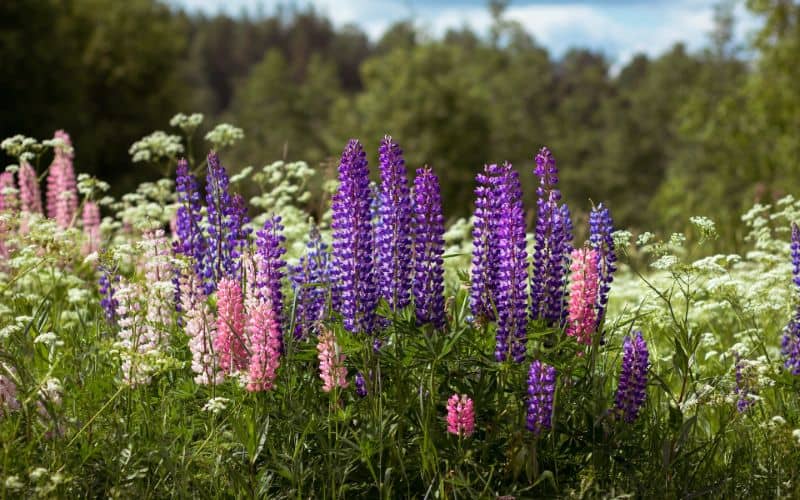
Lupine flowers are often used to symbolize innovation.
The reason for this is that these flowers are able to adapt to a wide range of growing conditions. Unlike many other types of plants, lupines can thrive in both sandy soils and clay soils. They also tolerate drought and cold weather well.
In addition, lupines have a deep taproot system that helps to anchor the plant and prevent erosion. This deep root system also allows lupines to access nutrients that other plants cannot reach.
As a result, lupines are able to grow and flourish in many different environments. Their ability to adapt and thrive in challenging conditions is what makes them a symbol of innovation.
6. Passion

Lupine has been used as a symbol of passion for centuries.
The word “lupine” itself comes from the Latin word for “wolf,” which was associated with strength and ferocity. Lupines are also known for their ability to quickly adapt to new environments and thrive in harsh conditions.
This tenacity is often seen as a metaphor for human passion. In addition, the lupine flower is known for its vibrant colors, which are said to represent the heat and intensity of passion.
For all of these reasons, lupine has come to be seen as a powerful symbol of enduring love and desire.
7. Determination

The lupine flower is often associated with determination and perseverance.
This is because the lupine is a hardy plant that can thrive in difficult conditions. The lupine is also known for its ability to quickly bounce back after being trampled.
For these reasons, the lupine has come to symbolize the qualities of strength and tenacity. In addition, the lupine is often seen as a symbol of hope. This is because the plant is able to adapt and survive in a wide range of environments.
No matter what challenges it faces, the lupine always manages to find a way to flourish. This resilience is an inspiration to us all, and it reminds us that we can overcome any obstacles if we are determined enough.
8. Compassion

The lupine flower is a symbol of compassion and hope.
Typically associated with the color blue, lupines represent peace and serenity. In addition, the word “lupine” means “wolf-like,” which is fitting given the flower’s strong, supportive roots.
Lupines grow in a variety of climates and soil types, representing the ability to adapt and thrive in difficult circumstances.
The unique shape of the lupine flower also symbolizes courage and perseverance, as the individual blooms stand tall despite challenges. For these reasons, lupines have long been associated with hope and compassion, serving as a reminder that even in dark times, there is always room for growth and strength.
9. Inspiration

Lupine flowers have been associated with inspiration for centuries.
In Ancient Greece, the lupine was known as the “wolf’s bane,” and was thought to be a symbol of strength and courage.
In medieval times, the lupine was known as the “Herb of Lupus,” and was said to have the power to cure madness. Today, the lupine is still considered a symbol of strength and courage, but it also represents inspiration, hope, and determination.
The tall spikes of purple flowers are said to represent the ascent to greatness, and the ability to overcome challenges. For many people, the lupine is a reminder that even in the darkest of times, there is always hope for a better tomorrow.
Spiritual Meanings of Lupine
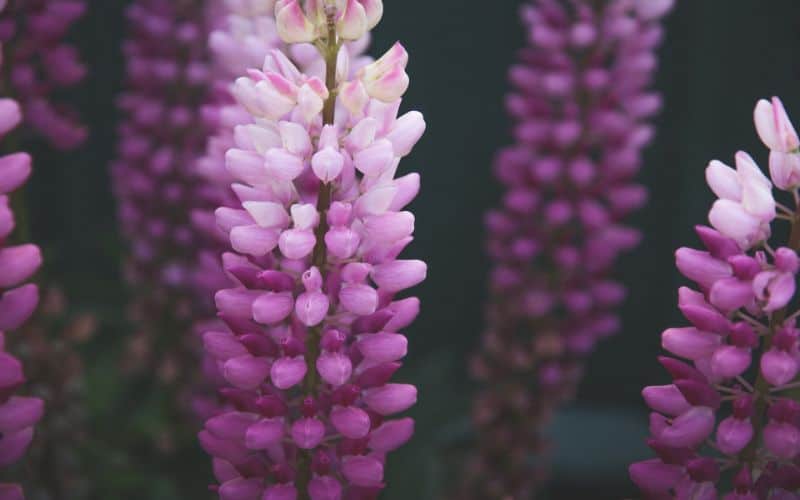
The lupine is a beautiful flower that grows in a variety of colors, including purple, blue, pink, and white. In addition to its physical beauty, lupine also has a number of spiritual meanings.
For many Native American tribes, the lupine is a symbol of faithfulness and loyalty. The Cheyenne people believe that the lupine is an earth-bound flower that helps to connect us to the spirit world.
The Mohave people view the lupine as a sacred plant and use it in a number of ceremonies. The Hopi people believe that lupine represents femininity and fertility.
Regardless of its specific meaning, the lupine is a powerful symbol of spiritual connection.
Lupine Dream Meaning and Symbolism
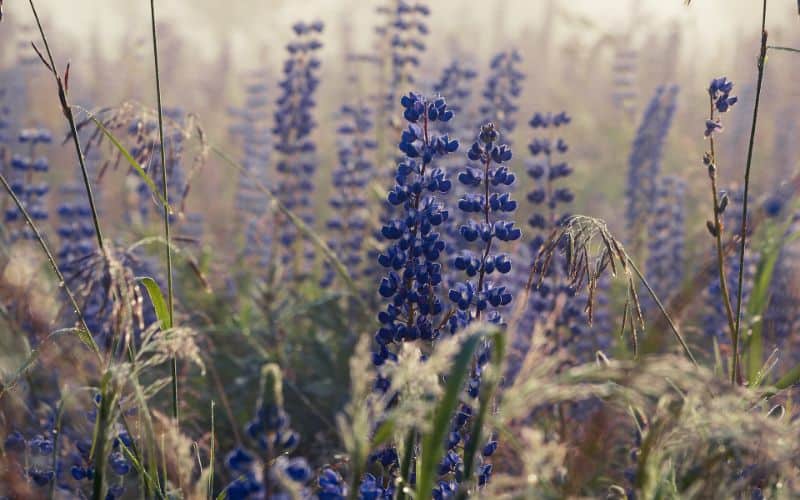
What does it mean to dream of lupines? Dreams about lupines can symbolize a number of different things depending on the context of the dream.
For example, lupines may represent innocence or purity, as their white flowers are often associated with these concepts. Alternatively, lupines may also be seen as a symbol of strength and courage, as they are known for being resilient plants that can thrive in difficult conditions.
Additionally, lupines can sometimes be interpreted as a representation of a change or new beginnings, as their quick growth and ability to colonize new areas are often seen as a metaphor for these concepts.
Ultimately, the meaning of dreaming about lupines will depend on the specific details and context of the dream. However, these are some of the most common interpretations of this type of dream.
Conclusion
The lupine is a flower with a wide range of meanings and symbolism. For centuries, it has been associated with concepts like strength, courage, inspiration, and hope. Additionally, the lupine is also seen as a symbol of spiritual connection and Native American tribes have long considered it to be a sacred plant. Dreams about lupines can also symbolize a number of different things, depending on the context of the dream. Overall, the lupine is a powerful flower with a wide range of meanings and symbolism.
